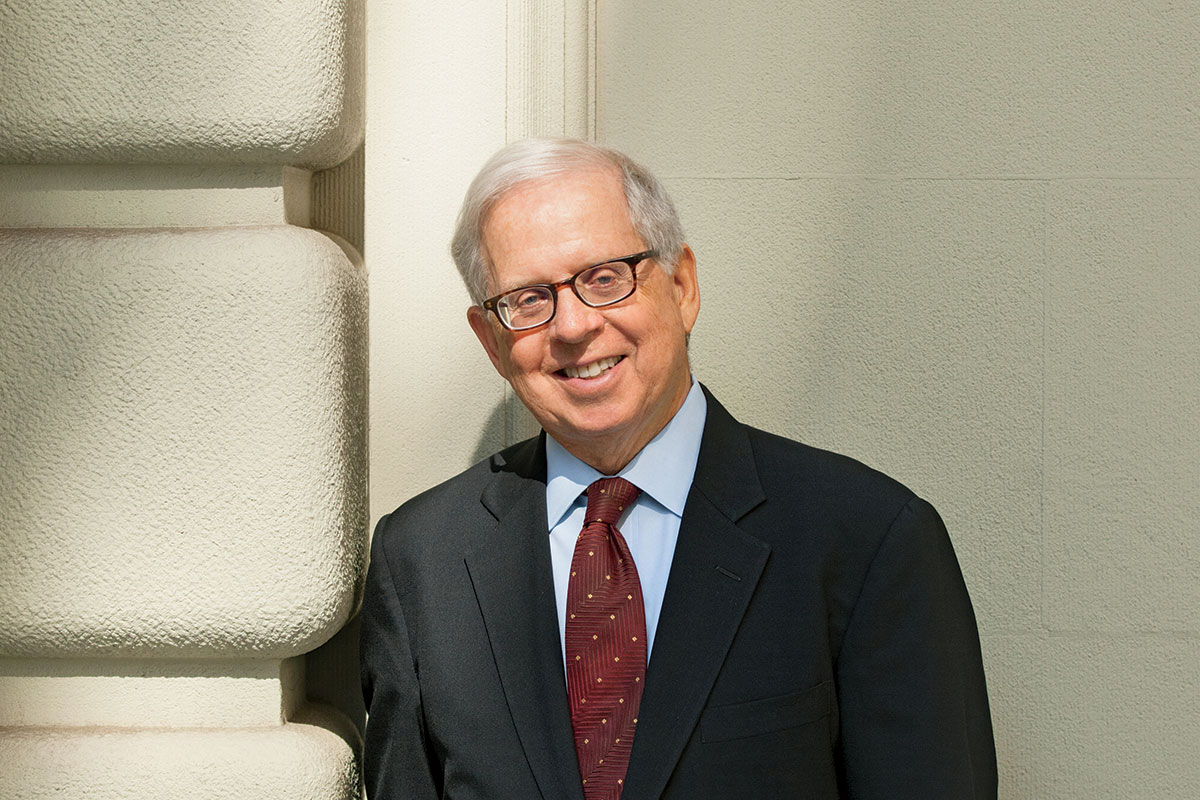Public school students from Rhode Island will today ask a federal appeals court to affirm civic education as a constitutional right. Representing the plaintiffs, TC’s Michael Rebell — Professor of Law and Educational Practice — will challenge state officials in the latest round of the three-year proceedings.
The case, Cook v. McKee, argues that all students throughout the country must be provided an education that prepares them to “exercise their civic responsibilities and maintain a vibrant democratic society.”
For Rebell, who also leads the College’s Center for Educational Equity, the extreme polarizing of our politics only reaffirms the critical need for a robust curriculum on the democratic process and civic life.
“Civic education is not a Republican or Democratic issue, not a liberal or conservative issue. People on all sides of the political spectrum tend to agree on it,” Rebell told the Boston Globe last week. While conservatives and liberals differ over exactly what should be taught in classrooms, “everyone agrees we need to prepare our children for a democratic society,” he said.
[An archived recording of the appeals court proceedings is available here.]
Last year, a federal district judge issued a remarkable ruling praising the students for demanding a better civic education. But he dismissed their claim this education was a right under the Constitution.

Michael Rebell, Professor of Law and Educational Practice, and the Executive Director of the Center for Educational Equity. (Photo: TC Archives)
“This is what it all comes down to: we may choose to survive as a country by respecting our Constitution, the laws and norms of political and civic behavior, and by educating our children on civics, the rule of law, and what it really means to be an American, and what America means,” wrote Judge William Smith of the U.S. District Court for Rhode Island at the time. “Or, we may ignore these things at our and their peril. Unfortunately, this Court cannot, for the reasons explained below, deliver or dictate the solution — but, in denying that relief, I hope I can at least call out the need for it.”
Rebell’s intention to appeal the ruling began almost immediately, focusing the case’s key issues to equal protection and substantive due process. “We’re asking for a meaningful education, more than bare literacy or elementary knowledge,” Rebell explained at the time. He believes that to confront the “crack” the Supreme Court left open in the Rodriguez case, and to fulfill the promise of Brown, the federal courts need to examine what young people need to know, and what skills, experiences, and dispositions they need, to be prepared for civic life in a democracy.
This is a developing story.
